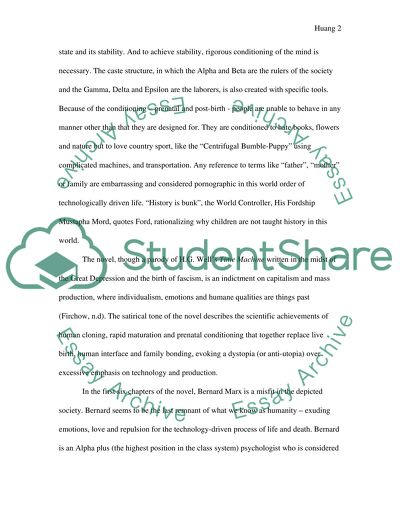Cite this document
(“Brave New World by Aldous Huxley Book Report/Review”, n.d.)
Brave New World by Aldous Huxley Book Report/Review. Retrieved from https://studentshare.org/miscellaneous/1527862-brave-new-world-by-aldous-huxley
Brave New World by Aldous Huxley Book Report/Review. Retrieved from https://studentshare.org/miscellaneous/1527862-brave-new-world-by-aldous-huxley
(Brave New World by Aldous Huxley Book Report/Review)
Brave New World by Aldous Huxley Book Report/Review. https://studentshare.org/miscellaneous/1527862-brave-new-world-by-aldous-huxley.
Brave New World by Aldous Huxley Book Report/Review. https://studentshare.org/miscellaneous/1527862-brave-new-world-by-aldous-huxley.
“Brave New World by Aldous Huxley Book Report/Review”, n.d. https://studentshare.org/miscellaneous/1527862-brave-new-world-by-aldous-huxley.


